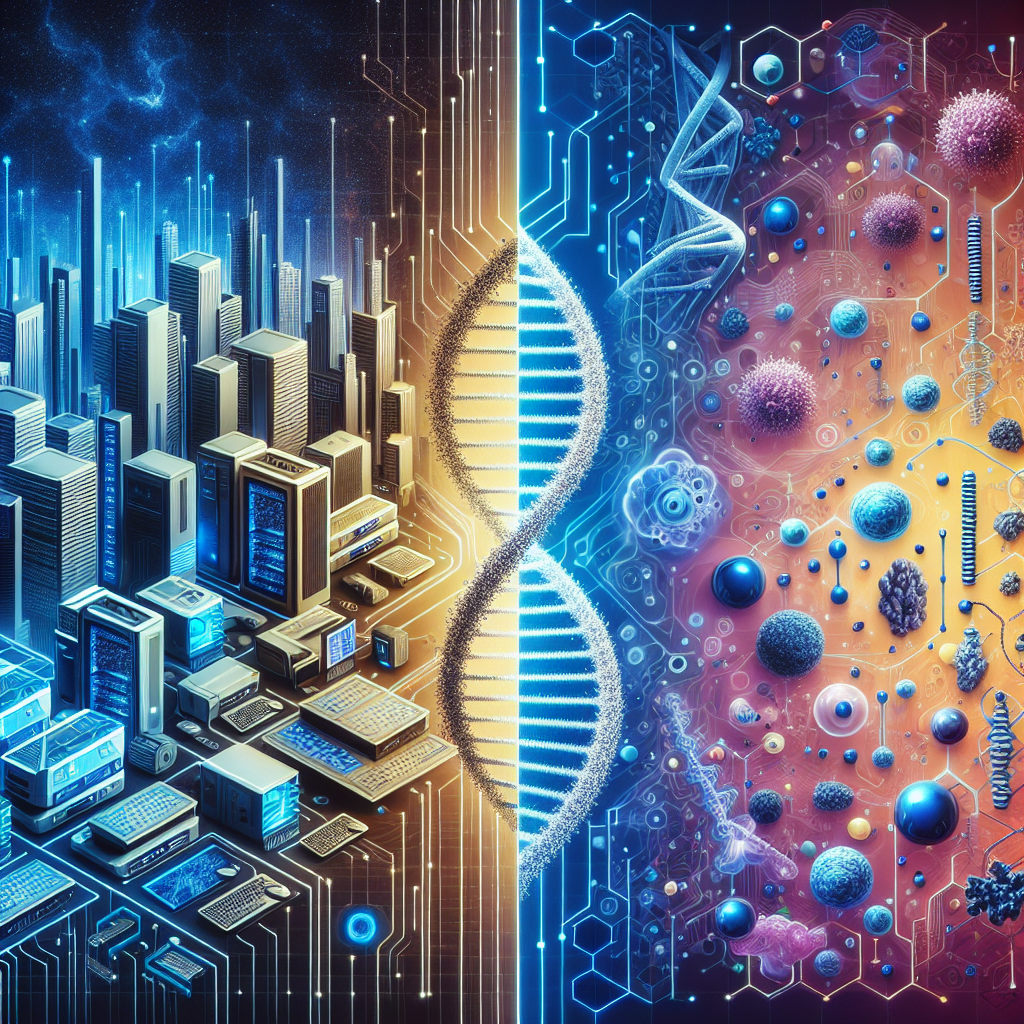The Intersection of AI Software and Bioinformatics
In recent years, the field of bioinformatics has seen a significant increase in the use of artificial intelligence (AI) software to help analyze and interpret complex biological data. This intersection of AI software and bioinformatics has led to groundbreaking advancements in our understanding of genetics, disease, and drug development.
Bioinformatics is the science of collecting, analyzing, and interpreting biological data using computational tools and techniques. It involves a wide range of disciplines, including biology, computer science, statistics, and mathematics. Bioinformatics plays a crucial role in genomics, proteomics, metabolomics, and other areas of biological research.
AI software, on the other hand, refers to computer programs that can perform tasks that typically require human intelligence, such as learning, reasoning, and problem-solving. AI software uses algorithms and machine learning techniques to analyze large datasets and make predictions or decisions based on the data.
The integration of AI software into bioinformatics has revolutionized the field by enabling researchers to analyze vast amounts of biological data quickly and accurately. AI algorithms can identify patterns, trends, and relationships in complex datasets that human researchers may overlook. This has led to the discovery of new genes, proteins, and pathways that play crucial roles in biological processes.
One of the main areas where AI software is making a significant impact in bioinformatics is in genomics. Genomics is the study of an organism’s complete set of DNA, including all of its genes. The human genome consists of over 3 billion base pairs, making it impossible for researchers to manually analyze and interpret all of the genetic information. AI software can analyze genomic data at a much faster rate than humans, allowing researchers to identify genetic variations associated with diseases, drug responses, and other traits.
AI software is also being used in proteomics, which is the study of an organism’s complete set of proteins. Proteins play a crucial role in virtually every biological process, including cell signaling, metabolism, and immune response. AI algorithms can analyze protein sequences, structures, and interactions to predict their functions and identify potential drug targets.
In addition to genomics and proteomics, AI software is being used in other areas of bioinformatics, such as metabolomics, which is the study of an organism’s complete set of small molecules, known as metabolites. AI algorithms can analyze metabolomic data to identify metabolic pathways, biomarkers, and potential drug targets.
Overall, the intersection of AI software and bioinformatics has the potential to revolutionize biological research and healthcare. By harnessing the power of AI algorithms, researchers can analyze complex biological data more efficiently and accurately, leading to new discoveries and advancements in personalized medicine.
FAQs:
Q: How is AI software used in bioinformatics?
A: AI software is used in bioinformatics to analyze and interpret complex biological data, such as genomic, proteomic, and metabolomic data. AI algorithms can identify patterns, trends, and relationships in large datasets that human researchers may overlook, leading to new discoveries and advancements in biological research.
Q: What are some examples of AI software used in bioinformatics?
A: Some examples of AI software used in bioinformatics include machine learning algorithms, neural networks, and deep learning models. These algorithms can analyze genomic sequences, protein structures, and metabolic pathways to identify genetic variations, protein functions, and potential drug targets.
Q: How does AI software benefit biological research?
A: AI software benefits biological research by enabling researchers to analyze vast amounts of biological data quickly and accurately. AI algorithms can identify patterns, trends, and relationships in complex datasets that human researchers may overlook, leading to new discoveries and advancements in genetics, disease, and drug development.
Q: What are the challenges of using AI software in bioinformatics?
A: Some challenges of using AI software in bioinformatics include the need for large and diverse datasets, the complexity of biological systems, and the interpretability of AI algorithms. Researchers must ensure that AI models are trained on high-quality data and validated against experimental results to ensure their accuracy and reliability.

